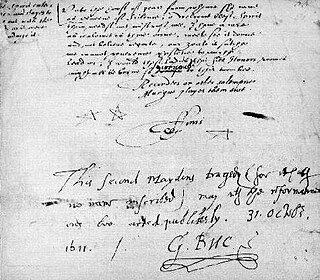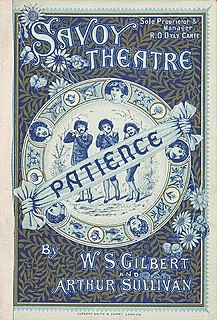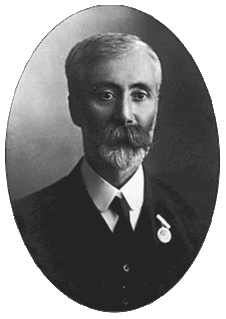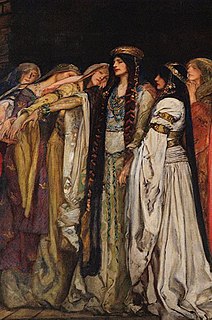
The Oxford English Dictionary (OED) is the principal historical dictionary of the English language, published by Oxford University Press. It traces the historical development of the English language, providing a comprehensive resource to scholars and academic researchers, as well as describing usage in its many variations throughout the world. The second edition, comprising 21,728 pages in 20 volumes, was published in 1989.

An apsara, also spelled as apsaras by the Oxford Dictionary, is a female spirit of the clouds and waters in Hindu and Buddhist culture. They figure prominently in the sculpture, dance, literature and painting of many South Asian and Southeast Asian cultures.

Pussy is a noun, an adjective, and in rare uses a verb in the English language. It has several meanings, including use as slang, as euphemism, and as vulgarity. Common meanings of the noun include "cat", as well as "coward or weakling", and "the human vulva or vagina", or as a synecdoche, "sexual intercourse with a woman". Because of its multiple senses including both innocent and vulgar connotations, "pussy" is often the subject of double entendre.

Maiden Castle is an Iron Age hill fort 1.6 miles (2.6 km) south west of Dorchester, in the English county of Dorset. Hill forts were fortified hill-top settlements constructed across Britain during the Iron Age.

Iron Maiden are an English heavy metal band formed in Leyton, East London, in 1975 by bassist and primary songwriter Steve Harris. The band's discography has grown to thirty-eight albums, including sixteen studio albums, twelve live albums, four EPs, and seven compilations.

A given name is a part of a person's personal name. It identifies a specific person, and differentiates that person from the other members of a group who have a common surname. The term given name refers to the fact that the name usually is bestowed upon a person, normally to a child by his or her parents at or close to the time of birth. A Christian name, a first name which historically was given at baptism, is now also typically given by the parents at birth.

The iron maiden is a torture and execution device, consisting of an iron cabinet with a hinged front and spike-covered interior, sufficiently tall to enclose a human being. The first stories citing the iron maiden were composed in the 19th century. The use of iron maidens is a myth from the 18th century that was heightened by the belief that people of the Middle Ages were uncivilized; evidence of their popularity is difficult to prove.

The Second Maiden's Tragedy is a Jacobean play that survives only in manuscript. The play comes from a handwritten manuscript and it is the only one left in existence in that form. It was written in 1611, and performed in the same year by the King's Men. The play itself was written during the Jacobean era. Included in the manuscript are stage directions as well as the text. Because there is only one manuscript, there are no other references as to what other stage directions and notes were needed. The manuscript was acquired, but never printed, by the publisher Humphrey Moseley after the closure of the theatres in 1642. In 1807, the manuscript was acquired by the British Museum. Victorian Poet and critic, Algernon Swinburne, was the first to attribute this work to Thomas Middleton; this judgement has since been joined by most editors and scholars. The play has received few modern revivals. It was the opening production at the newly refurbished Hackney Empire studio in 2006 starring Alexander Fiske-Harrison and Jos Vantyler.

Killers is the second studio album by the English heavy metal band Iron Maiden, released on 2 February 1981 by EMI Records in the United Kingdom and on 6 June 1981 by Harvest Records and Capitol Records in the United States. The album was their first with guitarist Adrian Smith, and their last with vocalist Paul Di'Anno, who was fired after problems with his stage performance arose due to his alcohol and cocaine use. Killers was also the first Iron Maiden album recorded with the assistance of producer Martin Birch, who went on to produce their next eight albums until Fear of the Dark (1992).
A matronymic is a personal name based on the given name of one's mother, grandmother, or any female ancestor. It is the female equivalent of a patronymic. Around the world, matronymic surnames are far less common than patronymic surnames. In some cultures in the past, matronymic last names were often given to children of unwed mothers. Or if a woman was especially well known or powerful, her descendants might adopt a matronym based on her name.
Dame Marina Sarah Warner, is an English novelist, short story writer, historian and mythographer. She is known for her many non-fiction books relating to feminism and myth. She has written for many publications, including The London Review of Books, the New Statesman, Sunday Times, The Daily Telegraph and Vogue. She has been a visiting professor, given lectures and taught on the faculties of many universities.

In Norse mythology, Billingr is the father of a maiden desired by Odin. According to stanzas 96-102 of the poem Hávamál from the Poetic Edda, Odin was told by the maiden to meet her after nightfall when it would be safest and she would give herself to him, but when Odin returned he found the path blocked by warriors with swords and burning torches. When he came back at daybreak he discovered that the maiden was gone and had left a bitch tied to the bed in her place. In this way Odin was thwarted in his attempts to possess the girl. The episode is narrated in the first person by Odin himself and used by him as an example of the supposed fickleness and deception of women, and he laments the folly of longing for that which is unobtainable.

Patience; or, Bunthorne's Bride, is a comic opera in two acts with music by Arthur Sullivan and libretto by W. S. Gilbert. The opera is a satire on the aesthetic movement of the 1870s and '80s in England and, more broadly, on fads, superficiality, vanity, hypocrisy and pretentiousness; it also satirizes romantic love, rural simplicity and military bluster.

Joseph Henry Maiden was a botanist who made a major contribution to knowledge of the Australian flora, especially the Eucalyptus genus. This botanist is denoted by the author abbreviation Maiden when citing a botanical name.

Virgo (♍), is the sixth astrological sign in the Zodiac. It spans the 150-180th degree of the zodiac. Under the tropical zodiac, the Sun transits this area on average between August 23 and September 22, and the Sun transits the constellation of Virgo from approximately September 16 to October 30. Individuals born during these dates, depending on which system of astrology they subscribe to, may be called Virgos or Virgoans. The symbol of the maiden is based on Astraea. In Greek mythology, she was the last immortal to abandon Earth at the end of the Silver Age, when the gods fled to Olympus – hence the sign's association with Earth.

The lied is a term in the German vernacular to describe setting poetry to classical music to create a piece of polyphonic music. The term is used for songs from the late fourteenth or early fifteenth centuries or even to refer to Minnesang from as early as the 12th and 13th centuries. It later came especially to refer to settings of Romantic poetry during the late eighteenth and nineteenth centuries, and into the early twentieth century. Examples include settings by Ludwig van Beethoven, Franz Schubert, Robert Schumann, Johannes Brahms, Hugo Wolf or Richard Strauss. Among English speakers, however, "lied" is often used interchangeably with "art song" to encompass works that the tradition has inspired in other languages. The poems that have been made into lieder often center on pastoral themes or themes of romantic love.
Christopher Philip "Chris" Wood is an English first-class cricketer who currently plays for Hampshire. Wood is a right-handed batsman who bowls left-arm medium pace.

Rozen Maiden is a Japanese manga series written and illustrated by Peach-Pit. It was serialized in Monthly Comic Birz between the September 2002 and July 2007 issues. The individual chapters were collected and released into eight tankōbon volumes by Gentosha. The eight volumes were localized to North America by Tokyopop between March 2003 and June 2007. The story follows Jun Sakurada, a middle school student who withdrew from society after suffering persecutions from his classmates. Following his withdrawal, he is chosen to become the master to a Rozen Maiden named Shinku. Rozen Maidens are seven sentient bisque dolls who compete against each other to become a perfect doll dubbed as Alice.

Conception: Ore no Kodomo o Undekure! is a role-playing video game developed by Spike. The game was released exclusively for the PlayStation Portable in Japan on April 26, 2012. A remaster of the game titled Conception Plus: Ore no Kodomo o Undekure! was released on January 31, 2019 for the PlayStation 4. A second game in the series, Conception II: Children of the Seven Stars, was released for the PlayStation Vita and Nintendo 3DS across 2013 and 2014 in Japanese and English, and later released on Steam in 2016.

The Land of Maidens is a motif in Irish mythology and medieval literature, especially in the chivalric romance genre. The latter often also features a castle instead of an island, sometimes known as the Castle of Maidens.

















